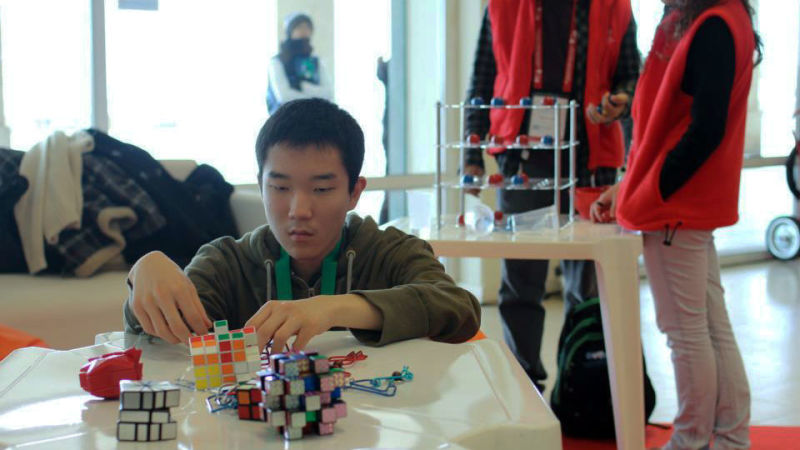Math education in the United States is consistently under the spotlight, in part because the majority of kids aren't performing well on international tests that compare math achievement. Since jobs in science, technology, engineering and math fields are projected to grow, the country's poor math performance worries many educators, business leaders and policy makers. Many affluent parents, who are themselves often employed in STEM fields, understand how important strong math skills could be to their children's future success. Unhappy with the quality of math instruction in public schools, these families are seeking extracurricular math training for their children in the form of camps, clubs and competitions. And it's working. For kids who love math and have access to these types of programs, high level math ability is increasing.
In The Atlantic, Peg Tyre describes what makes these extracurricular (and often expensive) math programs so successful. She found that almost universally teachers in these elite programs focus on conceptual math, not memorization or formulas. Students use their conceptual knowledge to explore, conjecture, predict and solve open-ended problems. And it's fun because the focus is on solving a complicated, challenging problems, not on practicing one skill over and over. Tyre writes:
"Rifkin trains her teachers to expect challenging questions from students at every level, even from pupils as young as 5, so lessons toggle back and forth between the obvious and the mind-bendingly abstract. 'The youngest ones, very naturally, their minds see math differently,' she told me. 'It is common that they can ask simple questions and then, in the next minute, a very complicated one. But if the teacher doesn’t know enough mathematics, she will answer the simple question and shut down the other, more difficult one. We want children to ask difficult questions, to engage so it is not boring, to be able to do algebra at an early age, sure, but also to see it for what it is: a tool for critical thinking. If their teachers can’t help them do this, well—' Rifkin searched for the word that expressed her level of dismay. 'It is a betrayal.'"
Tyre's article shows that with good instruction, kids from every background can succeed at the highest levels. The big question remains, how can this type of teaching become the norm for all students from the earliest ages? Without some big systemic changes, deep math preparation could quickly become yet another barrier to economic equality in this country.
http://www.theatlantic.com/magazine/archive/2016/03/the-math-revolution/426855/


